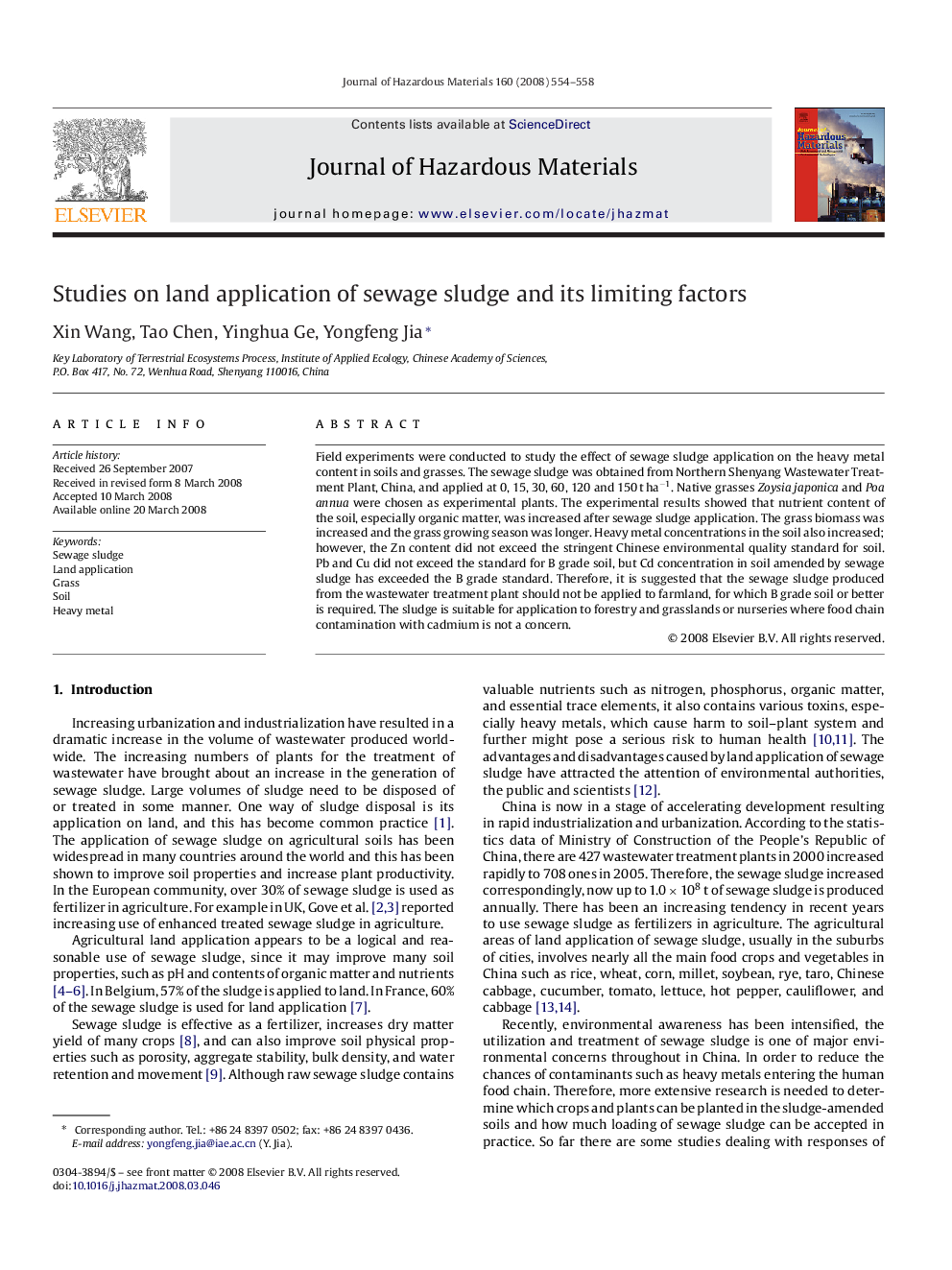| Article ID | Journal | Published Year | Pages | File Type |
|---|---|---|---|---|
| 582754 | Journal of Hazardous Materials | 2008 | 5 Pages |
Abstract
Field experiments were conducted to study the effect of sewage sludge application on the heavy metal content in soils and grasses. The sewage sludge was obtained from Northern Shenyang Wastewater Treatment Plant, China, and applied at 0, 15, 30, 60, 120 and 150 t haâ1. Native grasses Zoysia japonica and Poa annua were chosen as experimental plants. The experimental results showed that nutrient content of the soil, especially organic matter, was increased after sewage sludge application. The grass biomass was increased and the grass growing season was longer. Heavy metal concentrations in the soil also increased; however, the Zn content did not exceed the stringent Chinese environmental quality standard for soil. Pb and Cu did not exceed the standard for B grade soil, but Cd concentration in soil amended by sewage sludge has exceeded the B grade standard. Therefore, it is suggested that the sewage sludge produced from the wastewater treatment plant should not be applied to farmland, for which B grade soil or better is required. The sludge is suitable for application to forestry and grasslands or nurseries where food chain contamination with cadmium is not a concern.
Related Topics
Physical Sciences and Engineering
Chemical Engineering
Chemical Health and Safety
Authors
Xin Wang, Tao Chen, Yinghua Ge, Yongfeng Jia,
